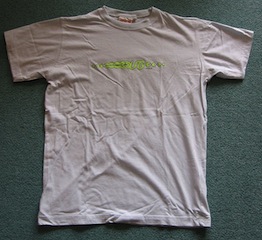Wedekind (1995)
 Wedekind et al (1995) carried out a study to test the role of MHC - a set of genes responsible for our immune system - on mate selection. This study can be used in the biological approach for the following content:
Wedekind et al (1995) carried out a study to test the role of MHC - a set of genes responsible for our immune system - on mate selection. This study can be used in the biological approach for the following content:
Research methods used in the biological approach.
Evolutionary explanations of behaviour.
Pheromones
It can also be used in the human relationships unit to discuss biological origins of human relationships.
Evolutionary psychologists argue that our behaviours are the result of natural selection – that is, the behaviours that best served the human gene pool have been passed down from generation to generation. Since mating behaviours are an essential component of how behaviour is inherited, it should be no surprise that why we choose the partners that we do is a major focus of evolutionary psychologists.
Wedekind studied what is known as the Major Histocompatibility Complex, a group of genes that play an important role in the immune system. MHC genes make molecules that enable the immune system to recognize pathogens; in general, the more diverse the MHC genes of the parents the stronger the immune system of the offspring. MHC genes are expressed co-dominantly – that is, that we inherit the MHC alleles from both of our parents and they are expressed equally. It would be beneficial, therefore, to have evolved systems of recognizing individuals with different MHC genes and preferentially selecting them to breed with to maximize immune responses. Evolutionary psychologists argue that our “smell” is the sign of our MHC. Wedekind wanted to see if women are attracted to a man because of his MHC. He did this in his famous “Smelly T-Shirt Study.”
Before reading the text below, watch this short video on the study.
The aim of the study was to determine whether one's MHC would affect mate choice. The sample was made up of 49 female and 44 male students from the University of Bern, Switzerland. Each participant was “typed” for their MHC, and a wide variance of MHC was included in the sample. It was noted if the women were taking oral contraceptives. The students probably did not know each other as they were from different courses: women from biology and psychology; men from chemistry, physics, and geography.
The men were asked to wear a T-shirt for two nights and to keep the T-shirt in an open plastic bag during the day. They were given perfume-free detergent to wash clothes and bedclothes and perfume-free soap for showering. They were asked not to use any deodorants or perfumes, to refrain from smoking tobacco or drinking alcohol, to avoid all spicy foods and to not engage in any sexual activity.
Two days later, the women were asked to rank the smell of 7 t-shirts, each in a cardboard box with a “smelling hole.” The women were tested whenever possible in the second week after the beginning of menstruation, as women appear to be most odour-sensitive at this time. The women were also asked to prepare themselves for the experiment by using a nose spray for the 14 days before the experiment to support regeneration of the nasal mucous membrane if necessary – as well as a preventive measure against colds or flu. Each woman was also given a copy of Süskind's novel Perfume to sensitize their smell perception.
Three of the seven boxes contained T-shirts from men with MHC similar to the woman's own; three contained T-shirts from MHC dissimilar men; and one contained an unworn T-shirt as a control. Alone in a room, every woman scored the odours of the T-shirts for intensity (range 0-10) and for pleasantness and sexiness (range 0 -10, 5 = neutral).
Women scored male body odours as more pleasant when they differed from their own MHC than when they were more similar. This difference in odour assessment was reversed when the women rating the odours were taking oral contraceptives. This suggests that the MHC may influence human mate choice.
The study clearly seems to support an evolutionary argument for mate selection in humans. The study has been successfully replicated by Jacob et al (2002). Yamazaki et al. (1976) showed this to be the case for male mice, which show a preference for females of different MHC.
Research shows that couples who suffer from repeated miscarriages often share a higher proportion of their MHC than control couples in many different populations (Beer et al. 1985). Also, newborn babies of such couples often have a reduced birth mass (Reznikoff-Etievant et al. 1991). So the ability to detect MHC could play a key role in a woman’s search for the “best mate.” Of course, such a “decision” is not a conscious one.
In spite of all the evidence, there are some that argue that the theory is too reductionist – that is, it over-simplifies the behaviour of human mate selection by bringing it down to the MHC – ignoring cognitive and socio-cultural factors.
The design of the study was a double-blind experiment. This means that neither the researchers nor the participants were aware of which t-shirt they were being exposed to at any point in the study. This was done in order to minimize demand characteristics.
The study also met ethical standards as consent was obtained from all participants and they were debriefed. The sample, however, may not be considered representative as the participants were similar in age and culture.

 IB Docs (2) Team
IB Docs (2) Team
